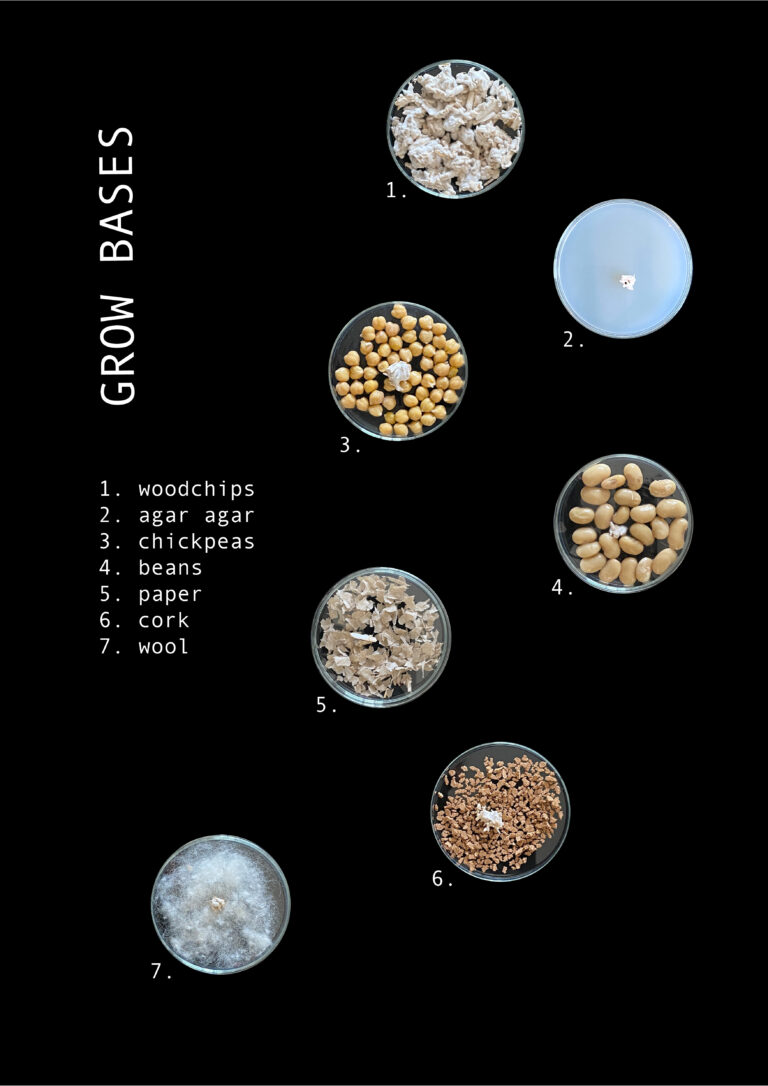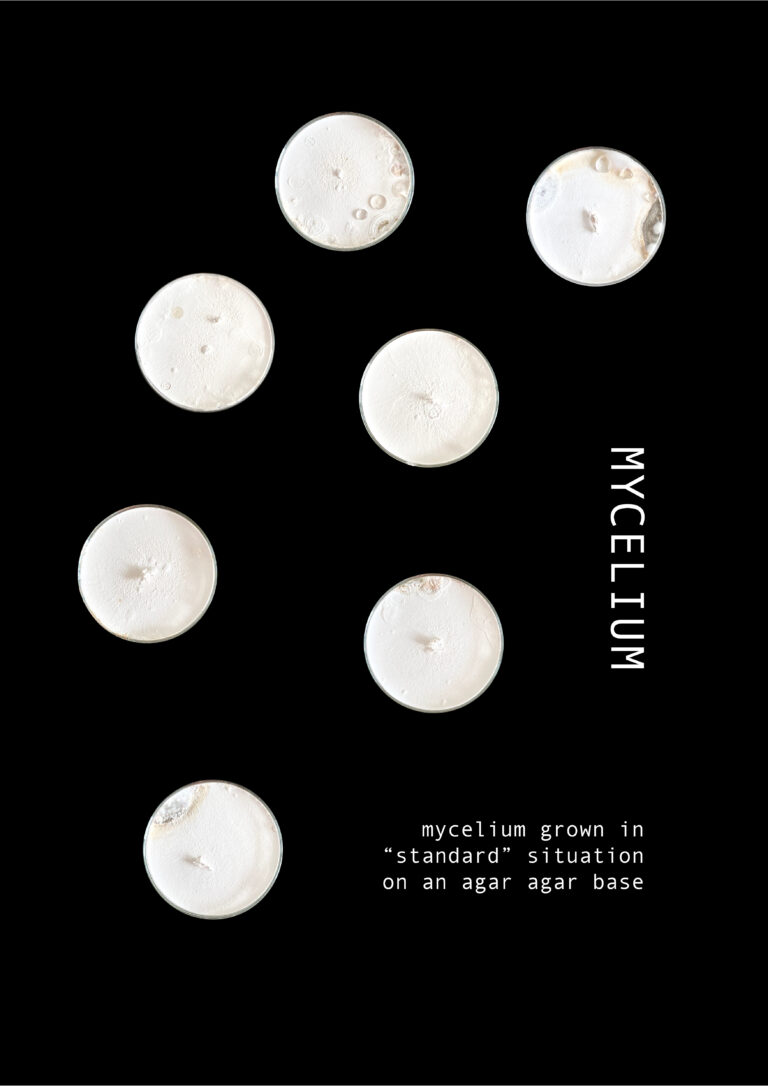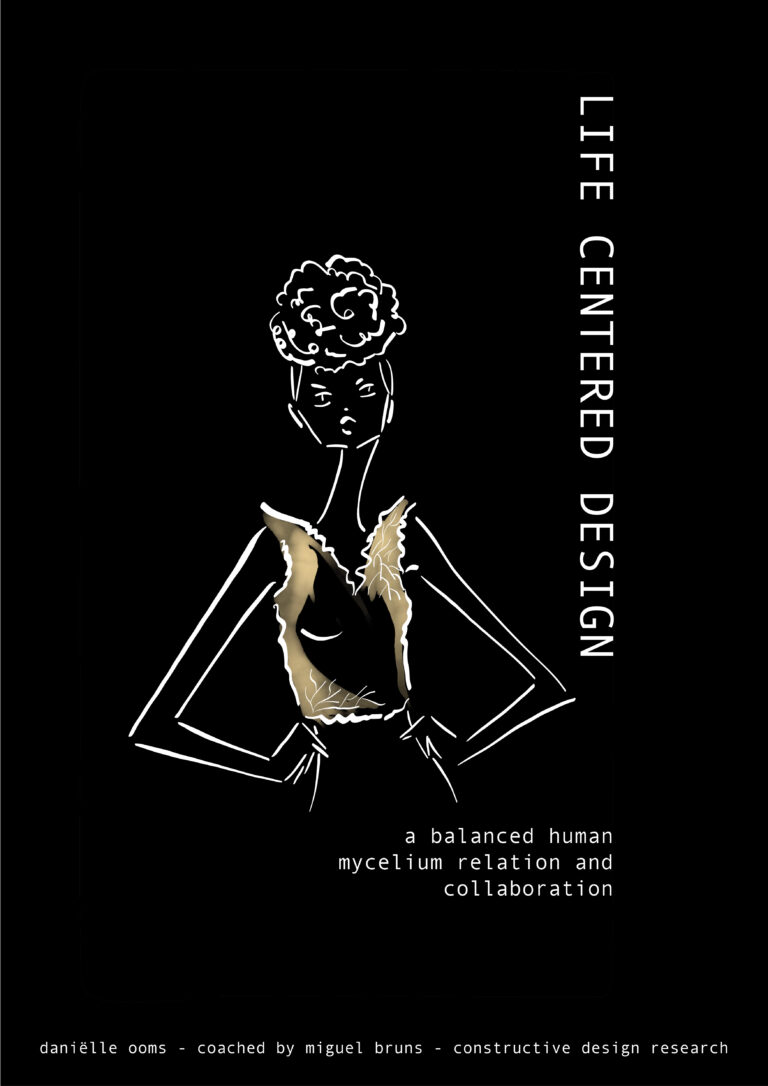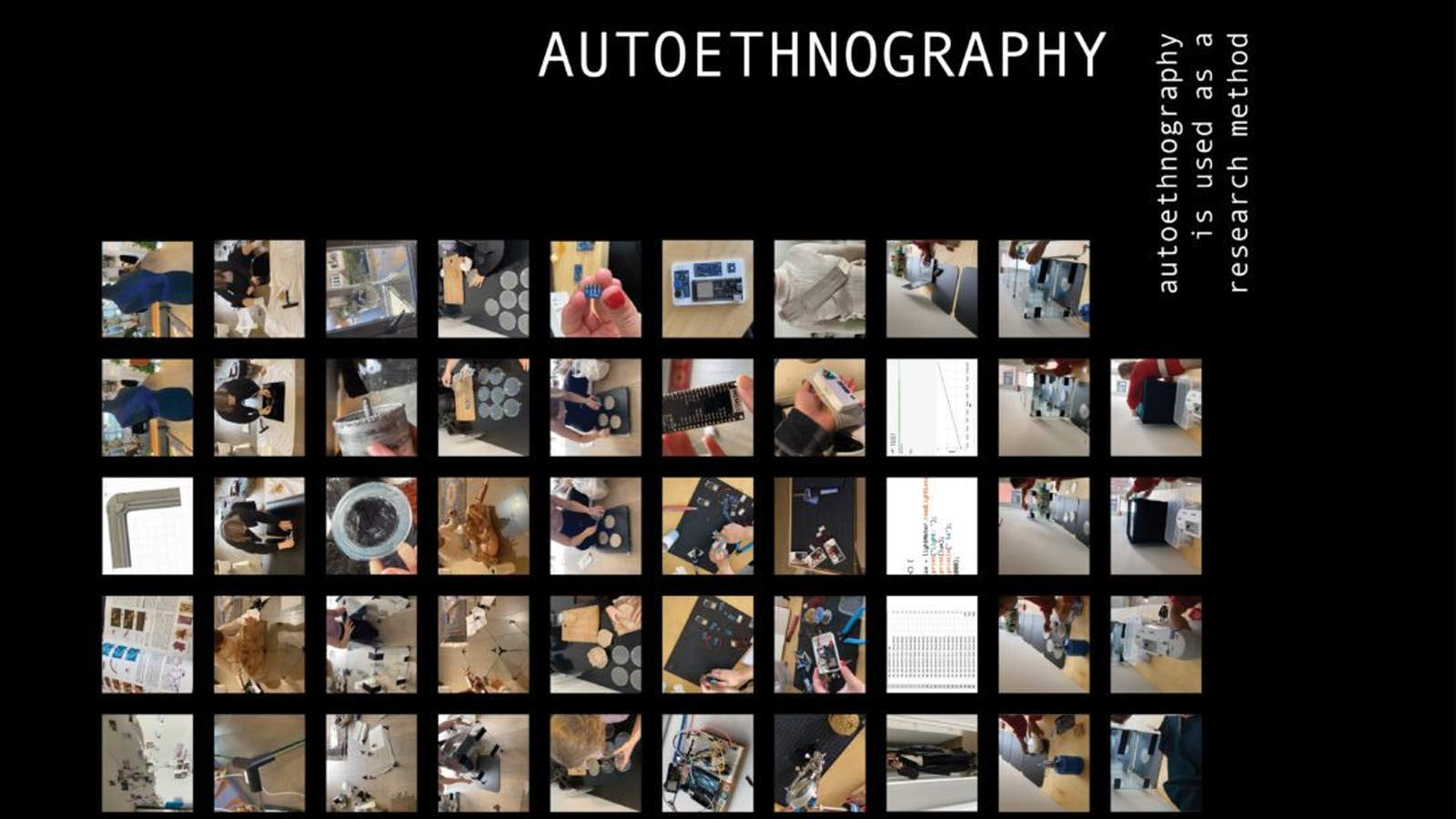Designers need to urgently alter their human-centered methods and reprioritise their goals to address the accelerating degradation of the environment. This new pressure demands our recognition of nature’s fragility and our responsibility to preserve it for future generations. The post-humanist movement provides an opening for designers to change the way we approach the world and broaden the perspective beyond humans (Forlano, 2017).
In this project, we introduce Life-Centered Design with which we aim to achieve a balanced human non-human relation. Human designers and users are equal to all living organisms involved in the design process and the designed outcome. The non-human can be any living organism; an animal, a plant, and/or a microorganism.
In this study, we focus on the human mycelium relation in the context of fashion design. To reduce the risk of unnecessarily harming the organism, a set of sensors inside the designed sensing wearable is used to gather data about the experience of human garments. The sensor collects data on light intensity, temperature, and humidity for one week. A dictafoon is used to collect sound fragments of various activities. The data are analysed and translated onto the living mycelium in a controlled environment in four different, newly designed greenhouses.
This life-centered design research focuses on the relation between the human and non-human. It addresses design considerations for both the design process and the design outcome. These design considerations include discussions about ethics, benefits and the needs for both designers and the non-human in the design process. In the current environmental crisis we (humans) have created, it is now necessary to look at the whole ecosystem and create a balanced relationship with nature. Putting humans in an equal position with the non-human may be a powerful starting point.







